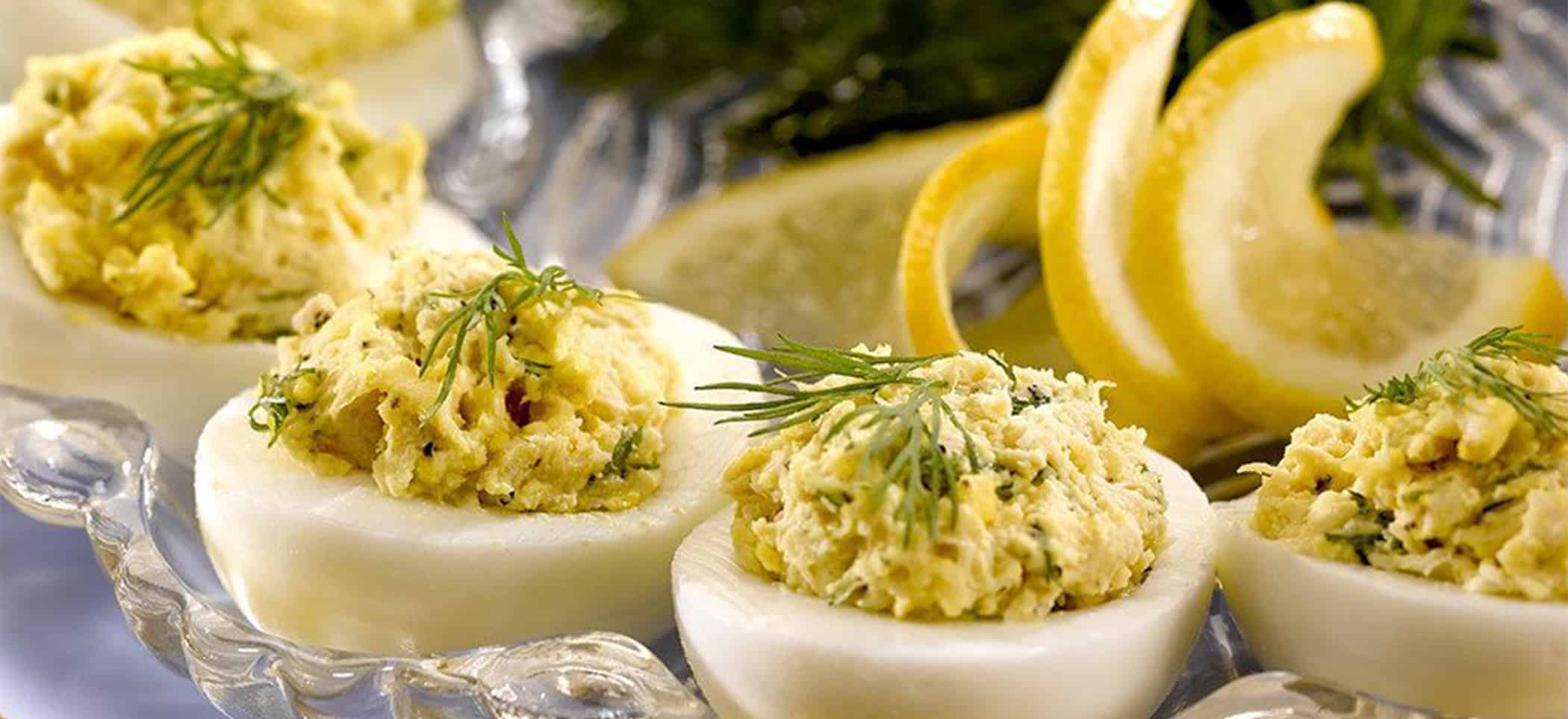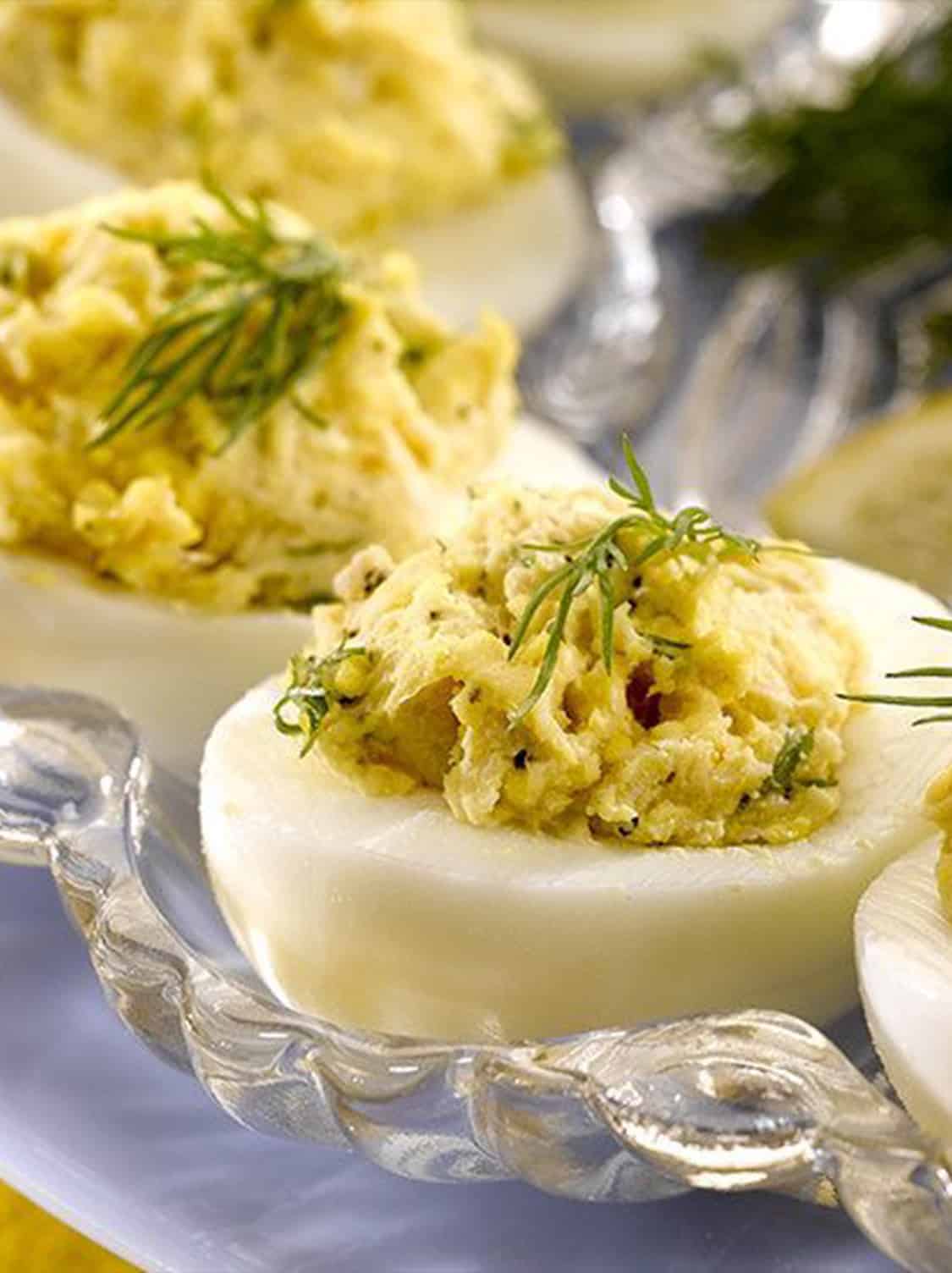

Directions
SLICE eggs lengthwise in half. REMOVE yolks; place in a medium bowl.
ADD crabmeat, mayonnaise, 2 tablespoons chopped fresh dill, lemon pepper, mustard and horseradish. MIX until blended.
DIVIDE yolk mixture evenly between egg whites.
SPRINKLE top of each filled egg white with additional fresh dill before serving.
Ingredients
- 12 hard-cooked EGGS, peeled
- 1 can (8 ounces) white lump crabmeat, drained, flaked
- 1/3 cup mayonnaise
- 2 tbsp. chopped fresh dill
- 2 tsp. lemon pepper
- 2 tsp. Dijon mustard
- 1 tsp. prepared horseradish
- Additional fresh dill, optional
Tips
Very fresh eggs can be difficult to peel. To ensure easily peeled eggs, buy and refrigerate them a week to 10 days in advance of cooking. This brief “breather” allows the eggs time to take in air, which helps separate the membranes from the shell.
To hard-cook eggs: PLACE eggs in saucepan large enough to hold them in single layer. ADD cold water to cover eggs by 1 inch. HEAT over high heat just to boiling. REMOVE from burner. COVER pan. LET EGGS STAND in hot water about 15 minutes for large eggs (12 minutes for medium eggs; 18 minutes for extra-large) COOL completely under cold running water and peel.
Hard-cooked eggs are easiest to peel right after cooling. Cooling causes the egg to contract slightly in the shell.
To peel a hard-cooked egg: Gently tap egg on countertop until shell is finely crackled all over. Roll egg between hands to loosen shell. Starting peeling at large end, holding egg under cold running water to help ease the shell off.
This recipe is an excellent source of protein and choline and a good source of vitamin A.
Per serving: 1/12 of recipe
- Calories 144
- Total fat 11 g
- Saturated fat 3 g
- Polyunsaturated fat 4.0 g
- Monounsaturated fat 3.4 g
- Cholesterol 255 mg
- Sodium 213 mg
- Carbohydrates 1 g
- Fiber 0 g
- Sugar 0 g
- Protein 10 g
- Vitamin A 98 mcg
- Vitamin D 1 mcg
- Folate 30 mcg
- Choline 184 mg
- Calcium 56 mg
- Iron 1 mg
- Potassium 83 mg
To ensure food safety, eggs should be cooked until both the yolk and the white are firm. Consuming raw or undercooked eggs may increase your risk of foodborne illness, especially for those with certain medical conditions. For recipes that call for eggs that are raw or undercooked when the dish is served, use either pasteurized shell eggs that have been treated to destroy Salmonella, or use pasteurized egg products.
